Andrew Gillen is a Research Fellow at the Cato Institute.

The Biden administration has released its plans to introduce a new income-driven repayment program for student loans. The proposed regulations are as bad as the early indications hinted they would be. For those just getting up to speed, a standard loan uses a fixed monthly payment and a predetermined number of payments (e.g., a car […]
Read More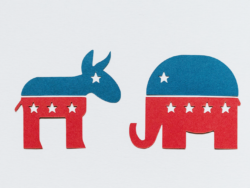
While we may have to wait until 2024 to see a Biden vs. DeSantis battle royale, we might have a preview in the skirmish over accreditation in Florida. To recap developments to date (see here for more), accreditors are private entities that have been entrusted with determining which colleges and universities are eligible for federal […]
Read More
While it’s understandable to get riled up about the latest outrage on campus, there is some potential good news that we shouldn’t fail to notice: After decades of continuously increasing, college tuition now appears to be trending down. While the level of tuition may still be too high (decades of sustained increases will do that), […]
Read More
President Biden’s student loan forgiveness plan is currently being evaluated by the courts. While we wait on them to rule on whether Biden’s actions are legal, we should make sure not to forget about the top five underappreciated scandals that accompanied the announcement: No. 1: Even liberals object to Biden’s abuse of emergency powers Biden […]
Read More
While President Biden’s proposed student loan forgiveness plan is justifiably getting most of the attention in the higher education policy world, he also proposed a new student loan repayment program that fundamentally undermines a definitional aspect of loans—repayment. Under this new plan, the median bachelor’s degree recipient will only owe $68 a month, regardless of […]
Read More
The notion that states have been cutting funding for higher education, commonly referred to as state disinvestment, is widespread within academia and the media. These cuts are alleged to be responsible for much of what ails higher education, especially the rise in tuition. Consider, for example, some recent statements from education leaders: • James Kvaal, […]
Read More
The Biden administration just announced its long-anticipated student loan forgiveness plan. The plan would forgive $10,000 for borrowers making less than $125,000 per year ($250,000 if married) and $20,000 for Pell grant recipients. On the bright side, the Biden plan could have been worse, such as wiping out all debt with no income restrictions. But […]
Read More
In a recent interview, Richard Hanania and Gail Heriot note how the legal concept of disparate impact—that any difference in group outcomes is evidence of discrimination—essentially makes everything illegal. This, in turn, gives the government the authority to do whatever it wants by selectively choosing which cases to bring: Literally any practice you can think […]
Read More
For years progressives have been trying to close an imaginary loophole regarding the 90-10 rule and the GI Bill. Colleges are subject to the 90-10 rule, which requires that no more than 90% of their revenue can come from federal financial aid. Meanwhile, Congress has consistently passed GI Bills, which provide funding for servicemembers and […]
Read More
Among the debates over federal student loans, two of the most important are: 1) should student loans be used to subsidize college? and 2) are student loans subsidizing college? Should Student Loans be Used to Subsidize College? Regarding the first debate, scholars have long pointed out that there is a role for government facilitation of […]
Read More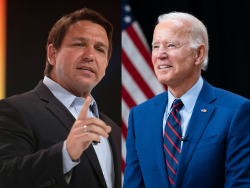
If you’re not familiar with higher education accreditation, you may want to get up to speed. Accreditation is rapidly shaping up to be one of the most important front lines in the never-ending battle between reformers and the establishment. The latest confrontation concerns the Biden administration’s effort to subvert recent reforms in Florida. But first, […]
Read More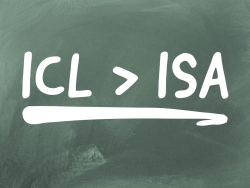
As student loan debt has grown (currently more than $1.6 trillion in federal loans), it has gotten more attention from the public and Washington. Progressives are pushing for free college and loan forgiveness. While conservatives have rightly criticized the Biden administration’s proposals, they haven’t put forward many alternatives. Unfortunately, one of the few ideas that […]
Read More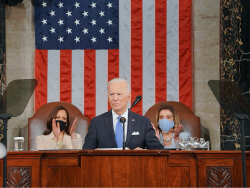
President Joe Biden is considering a student loan forgiveness plan which would forgive $10,000 per borrower for individuals making less than $150,000 per year ($300,000 for a family). Without the income cap, this would cost $380.2 billion. It would wipe out the entire debt of those with a balance of $10,000 or less (15.2 million […]
Read More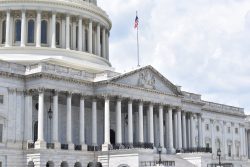
Editor’s Note: The following is an excerpt from The Problems with Student Loan Forgiveness, a new report from the Texas Public Policy Foundation that argues against universal and complete student loan forgiveness. This is the sixth in a series of six excerpts from the report. Part 6: Legal Problems With Student Loan Forgiveness The Executive […]
Read More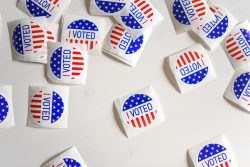
Editor’s Note: The following is an excerpt from The Problems with Student Loan Forgiveness, a new report from the Texas Public Policy Foundation that argues against universal and complete student loan forgiveness. This is the fifth in a series of six excerpts from the report. Part 5: Political Problems With Student Loan Forgiveness There are […]
Read More
Editor’s Note: The following is an excerpt from The Problems with Student Loan Forgiveness, a new report from the Texas Public Policy Foundation that argues against universal and complete student loan forgiveness. This is the fourth in a series of six excerpts from the report. Part 4: Moral Problems With Student Loan Forgiveness Student loan […]
Read More
Editor’s Note: The following is an excerpt from The Problems with Student Loan Forgiveness, a new report from the Texas Public Policy Foundation that argues against universal and complete student loan forgiveness. This is the third in a series of six excerpts from the report. Part 3: Economic Problems With Student Loan Forgiveness Student loan […]
Read More
Editor’s Note: The following is an excerpt from The Problems with Student Loan Forgiveness, a new report from the Texas Public Policy Foundation that argues against universal and complete student loan forgiveness. This is the second in a series of six excerpts from the report. Part 2: Educational Problems With Student Loan Forgiveness The next […]
Read More
Editor’s Note: The following is an excerpt from The Problems with Student Loan Forgiveness, a new report from the Texas Public Policy Foundation that argues against universal and complete student loan forgiveness. This is the first in a series of six excerpts from the report. Part 1: Logical and Rhetorical Problems With Student Loan Forgiveness […]
Read More
Accreditors serve as key gatekeepers in higher education. Without accreditation, a college’s students are not eligible to receive federal financial aid such as Pell grants and federal student loans. This gives accreditors a fairly unique role in allocating federal spending—these private entities decide whether taxpayer dollars will flow to a college. Given that the public […]
Read More
The Department of Education is going to forgive an additional $6.2 billion in student loans for 100,000 students through the Public Service Loan Forgiveness program. This adds to the $1 billion in previously forgiven loans for 11,000 students. This shows one of the reasons why student loan forgiveness is such a bad idea. Under the […]
Read More
I borrowed over $30,000 for college, and after many years of repayment, I am now officially (student loan) debt-free. By a bizarre twist of fate, much of my professional life has been devoted to studying financial aid programs like student loans. In this essay, I reflect back on how my student loan experience compares to […]
Read More
Last week, the U.S. Department of Education announced new changes to the Public Service Loan Forgiveness (PSLF) program. The changes make a bad program worse. PSLF was launched in 2007 and provides accelerated loan forgiveness for politically favored workers. Other college graduates with student loan debt need to make payments for at least 20 years […]
Read More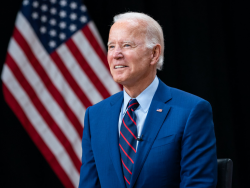
Details are starting to emerge about the Biden administration’s plans for free community college. According to a story in Inside Higher Ed by Alexis Gravely, the key details include: States that opt-in must set community college tuition and fees to $0 and must maintain current spending on community colleges. To offset the loss of tuition, […]
Read More
Editor’s Note: This excerpt is part of a longer essay published by The Heritage Foundation on the conservative policy response to COVID for higher education. The full essay can be found at The Heritage Foundation website. The key to finding policies that can garner widespread conservative support lies in understanding the four schools of thought through […]
Read More
Most people and institutions are held accountable, however imperfectly. We all know of a charlatan who has yet to be exposed, or a shady institution that is coasting on its reputation, but eventually, the truth wins out. With any luck, that moment has arrived for higher education. Last fall’s publication of the most comprehensive college […]
Read More
The COVID-19 pandemic is causing devastating financial damage throughout the economy, and higher education is no exception. Colleges worry about a decline in enrollments from students newly wary of gathering in close quarters, cuts in state funding that historically accompany recessions, and declines in the value of endowments. These dangers are real, but they don’t […]
Read More
I have a confession to make. My recent study on state funding of higher education was about the simplest piece of research I’ve done in a dozen years. So was the finding; there’s been no trend of state disinvestment in higher education. But what a ruckus it caused. The key finding entailed simply downloading and […]
Read More
Conservatives have long worried about the Bennett Hypothesis. Named for former Education Secretary William Bennett, it argues that the availability of federal financial aid programs leads colleges to increase tuition faster than they otherwise would. Conservatives have been right to worry. But there’s a way to break that link—by changing how we determine aid eligibility. […]
Read More
Skin in the game for student loans, the idea that colleges should face financial consequence when their students default, is gaining momentum in policy discussions. After all, when students take out loans, the colleges get all their money upfront, leaving taxpayers holding the bag when students default on the loan payments years later. It seems […]
Read More